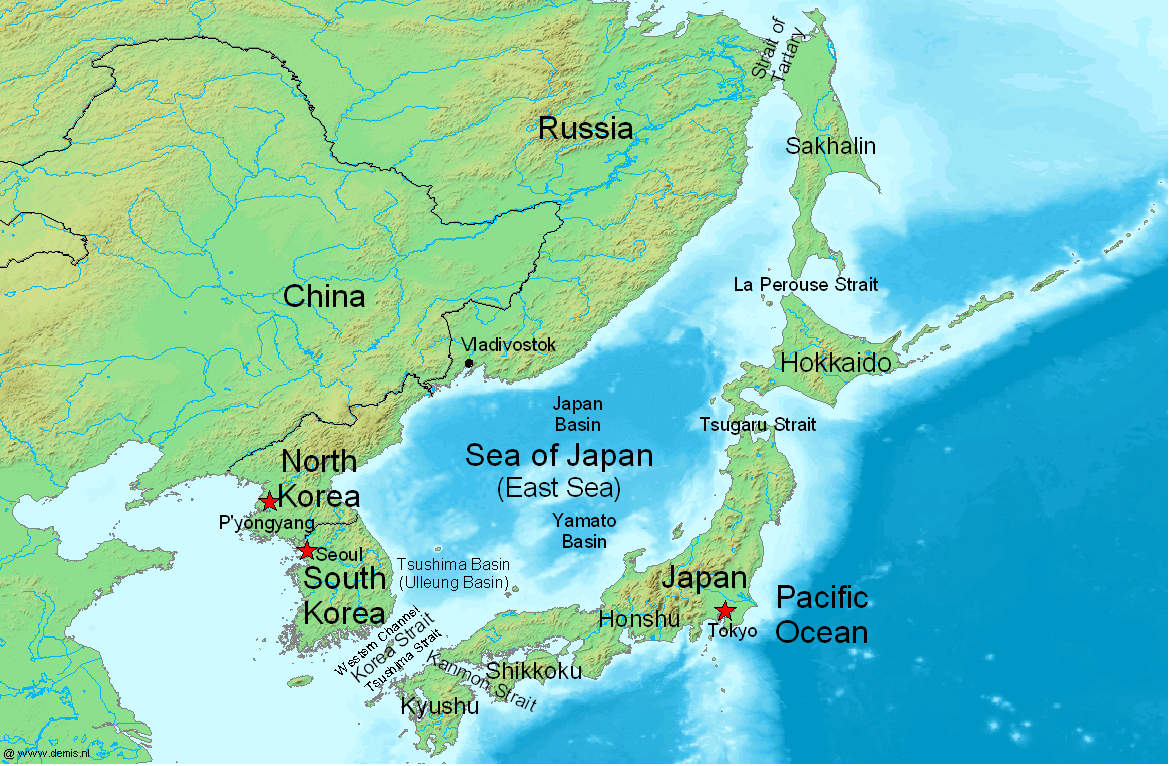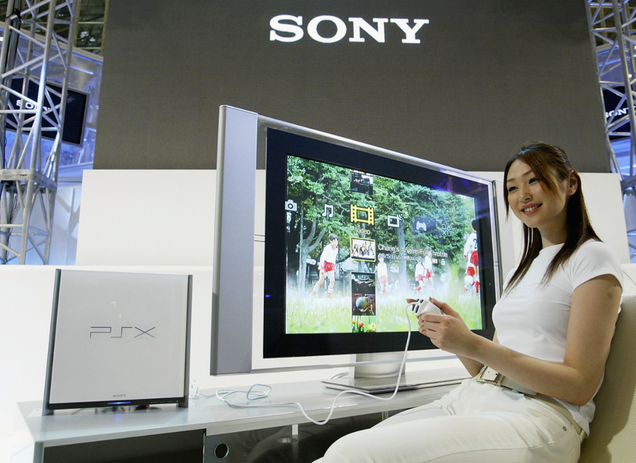People fight because they differ in ideas or have deep-seated differences. This underlying causes of conflict can be found in submerged in every culture. But today people fight because they are irrational, which can lead to so much animosity between both genres that are poisonous. There so much controversy that comes with both K-pop and J-pop one example being, Clothing War: Craypop vs Momoiro Clover Z which a little speculated because Korean culture or Asia, in general, have a lot of cultural similarities. Another example is when I watched E-girls’ Rydeen which they used similar sets and triangle graphic used in 4 Minute’s Mirror Mirror and LoveTension but K-pop uses the same set and all the time so, who cares right because both songs look fantastic.
Let's not call kettle black just yet. People compare them a whole lot, people mistake one for the other, then they bashed one another because of the lack of knowledge of the two. I personally believe that music its suppose to bring people together and that the human race is a huge tribe of diversity yet we all smile when we're happy and cry when we're sad.
The J-pop and K-pop Industry are similar but J-pop has more of an artistic versatility than its wrapped up in a bow counterpart K-pop, which is already being transmitted worldwide. Yes, K-pop has changed due the fact it been through a lot, and yes, the artist are usually sign into devil contracts once they've finished their training, and yes, they can choose not attend college; like Hyuna of 4 Minute; or to go to college, like Ukiss' AJ and Minzy from 2ne1 but they must have a good grades.
People have tried to analyze these two music industries but there has not been a really good article about it yet. Why not from a Sociological perspective, Society creates a culture and which includes art, and lead to music. So let's look at their history you can tell a lot about a country from its history.
Korea(400BC(?)-)
- It is separated from Japan to the east by the Korea Strait and the Sea of Japan (Japan and Korean are practically cousins, kind of makes you wonder what happen if the strait didn't create a sea between them)
- During Korea’s Three Kingdoms, of the two had relations with Japan but it is debatable about kind of relationship between the courts, but it seems to point to family ties.
- 2nd BC Korea adopted the Chinese writing system (Hanja).
- As well, Buddhism took effect on the ancestral Korean
- Mongols took over Korea but later collapsed (known as the third kingdom)
- Confucianism is a huge influence on Korean culture even until today but also has its roots in traditional folk beliefs and folk tales of the peninsula strongly influenced Buddhism and Taoism.
- They used to be called Hermit Kingdom(1392–1897), which the country became the object of the colonial designs by Japan until 1910 but still colonized till 1945. (Music: Trot)
- Then during WWII US took what is today's S. Korea under its wing while N. Korea was taken over by the Soviets and we all know what happened next.
So, we know that everyone had it's hands (China, Japan, Soviets, and the US) in Korea so, you can see a lot of influencers/variables in the Culture. Now let’s look at Japan…
Japan
- People(Ainu) lived in Japan as early as the Late Stone age period.
- It lies to the east of the Sea of Japan, China, North Korea, South Korea and Russia.
- Japan did close itself off from the world during the Edo period (1603-1868).
- The modern Japanese writing system is a combination of two character types: logographic Kanji, adopted from Chinese characters, and syllabic Kana.
- Japanese population subscribes to Buddhism or Shinto some have fused the two. Taoism and Confucianism from China have also influenced Japanese beliefs and customs. Japanese streets are decorated on Tanabata, Obon, and Christmas (Christian: less than 1%). During festivals and occasions such as the first shrine visit of the New Year, the level of participation remains high.
- Latter religions include Islam, Hinduism, Sikhism, and Judaism, since the 12th century until 1868, Japan was ruled by successive feudal military shoguns in the name of the Emperor.
- In the late 19th and early 20th centuries, victories in the First Sino-Japanese War, the Russo-Japanese War, and World War I allowed Japan to expand its empire during a period of increasing militarism.
- The Second Sino-Japanese War of 1937 expanded into part of World War II in 1941, which ended in 1945 following the atomic bombings of Hiroshima and Nagasaki.
What I found interesting is what I read about how Korean musical roots are probably the basis of which their music industry is the way it is today.
“With the rise of royal authority, the advent of Three Kingdoms (government) brought about the creation of royal music institutions (JYP, YG, SM...) to support the cultural life of the royal and aristocratic families, and of palace musicians and dancers (artists) specializing in the songs, dances, and instrumental music supported by those institutions (JYP, YG, SM...)."
This is just some incite. But interesting to say the least. And this is the main reason why a lot of artists become Asian (Visual) Cultural Ambassadors in promoting their culture.
I'm looking at you Kyary Pamyu Pamyu and Psy. [ updated 1-16-2015]
However, Japan is still that country that still wants to close itself off. Especially, now with Hallyu Wave bombarding them with Korean media. According to reports, Japanese actor Sousuke Takaoka was fired from his promotion agency after criticizing the Fuji TV network on Twitter for airing so many Korean programs that he felt "brainwashed." Even reports of boycotting Korean based programs with protesters carrying Japanese flags and shouting "No more Korean wave."
Back in 2003, was a big year for Korean entering the Japanese market with BoA and TVXQ/DBSK and K-drama Winter Sonata and then again, years later with Kara and Girl’s Generation both coming out with Japanese hits and big drama hit that was dubbed specially marketed for the Japanese market IRIS I & II. So, what is the problem well, most of Japan wasn't ready for the change, and you wonder why it’s been dropping in popularity and everyone switching gears. Korean music industry lives on free publicity and the American way of getting their artist out there seems to be more profitability. On other hands, Japan instead of embracing exposure, it has opted out. In one recent incident, Lady Gaga's twitter was briefly suspended after she posted an unauthorized clip of her appearance on J-Pop boy band SMAP's variety show.
The Japanese influence can be argued that it was always on shaky ground, to begin with. Japan prides itself on producing and exporting its own wondrous pop culture but since the induction of Korean entertainment such as melodramas and musical market success. We know that Japanese pop culture is too isolated from the rest of the world to have remained a sustainable global influence due to environmental isolation. Primarily, Japans electronic companies have launched technologies that are only exclusively sold in Japan. And this use to also apply to Japanese video game market. Japan is something similar to going a place much like Alice in Wonderland. Although cultural trends are somewhat inundated with the West, it stills keeps cultural uniqueness with martial arts, Manga, Anime, and Kawaii Culture.
It’s unlikely Japanese artist can pick up new fans with their current music format. These days, Japan makes stuff mostly for Japan. This presents a major problem to the industry as a whole. One prime example of such a concern can be seen through AKB48 a group that has come to dominated airwaves and advertisements across Japan. Targeting Otakus across Japan since 2005, AKB48(of 48 members) has grown to become very successfully domesticated and has expanded into a media franchise encompassing movies, Manga, games, drama, and radio. Their success and popularity is everything a company could want from a girl group. But still, the industry is on the rocks dragging the Anime industry with it as well. Thus, the Japanese government has established the Cool Japan initiative but is failing to achieve penetration rates rivaling those of its South Korean equivalents. The Japanese music industry has become so focused on catering to popular trends; it has become impossible for anyone outside of the market to appreciate the products it creates. Sociologically, Japan is sexually suppressed. AKB48 frequently wear school uniforms while performing and their songs have lyrics like “My school uniform is getting in the way.” Japanese girl idols are expected to publish photo books, consisting of usually bikini shots or holiday/festival pictorials. A song like that would be banned in Korea. Korea strongly adopted Confucianism, unlike Japan, who has only kept some elements (today only 84% follow Shinto).
Japan is third largest economy since 2010, with the second largest music market in the world but is slowly on the decline to its high dependence on CD sales and lack of download services. If there was a need for J-pop to replicate K-pop's success they would have done it but there might be a need for J-pop to go with a less traditional route then they have been doing to get their artist more exposure.
Korea
There are a number of reasons why South Korea’s ambitions to be the world’s pop culture factory. Other reasons are that Japanese(youth) are nutty for Korean pop culture, and have pretty much voluntarily ceded the tastemaker role to South Korea. Secondly, K-pop has already conquered Europe, and particularly the French, love Korean pop culture with a frenzy. Part of this may be because the K-pop sound has American/European influences. Another reason, Korea culture protects childhood innocence at any price. This means that even if the K-pop idols are of age, they can’t appear in a spread that would be inappropriate for their child fans. K-pop bands need at least to look and act like grown women; examples of this Girls Generation, Aliee, and 2ne1.
The reason for this Korea’s large Christian population and even centuries rooted in Confucianism the system of governance before the arrival of Christian missionaries. Also, several generations of South Koreans grew up hearing American pop on American Forces Network television and radio, and US soldiers’ tastes created the demand for American music to be sold in shops and played in nightclubs. Perhaps this is why the K-pop sound is much more US-influenced than J-pop is, particularly with the K-pop’s predilection for R&B, hip-hop, and rap. Lastly, the South Korean recording industry is run like huge conglomerates; scouting, training their recruits for years until they are ready for the public eye. Hey, Roman wasn't built in a day. I leave you guys with this quote and other references to look at::
“An eye for an eye will only make the whole world blind.”
So,
what do you guys think?
what do you guys think?
And here is what others had to say:
Youtube
Articles






















0 comments :
Post a Comment